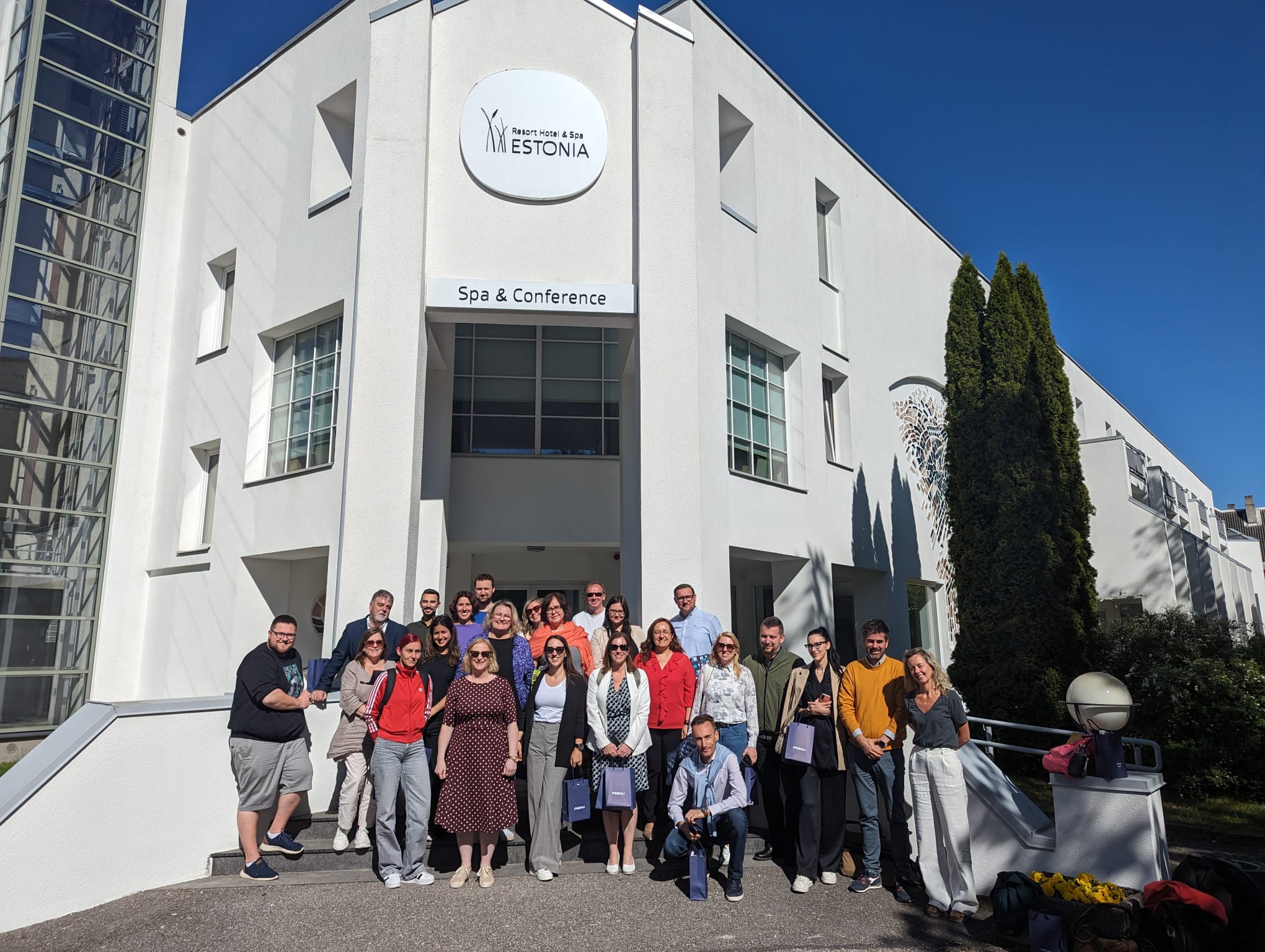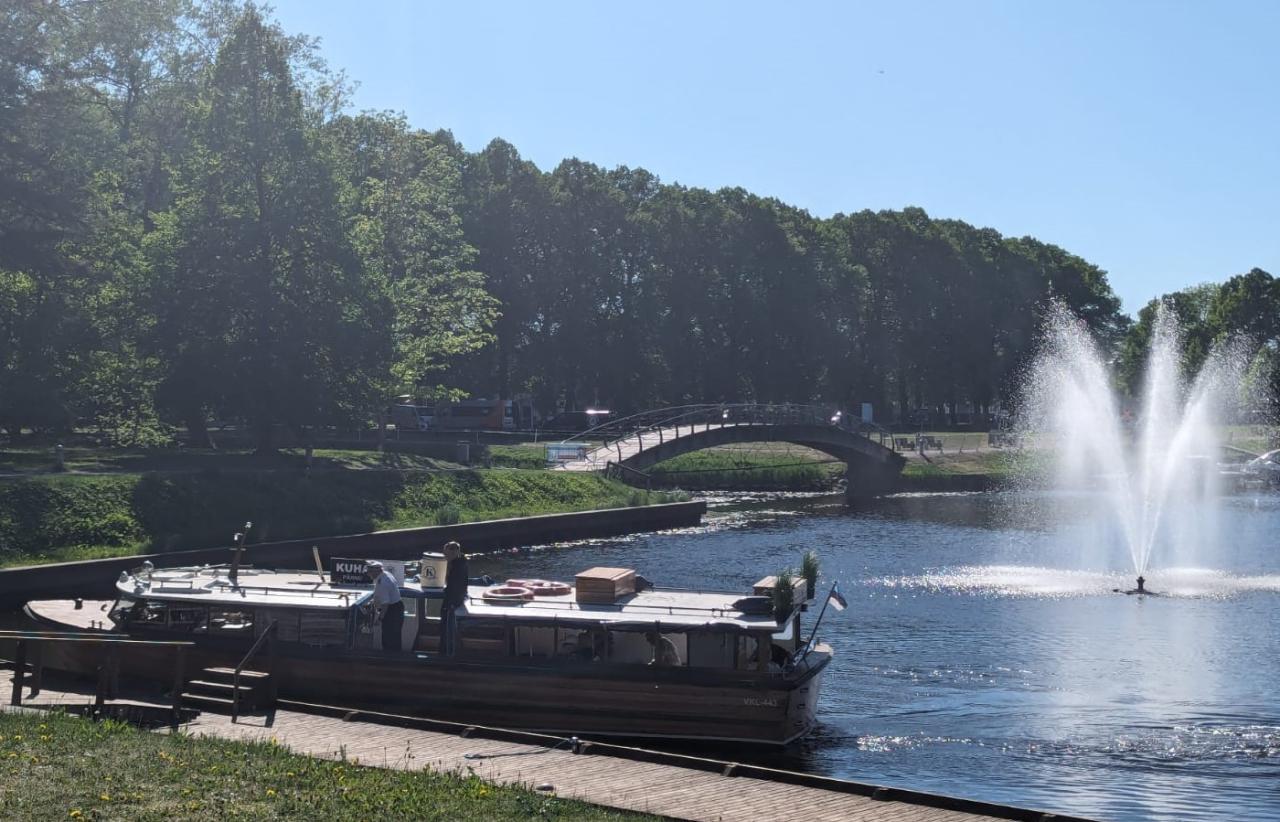Day 1: Strategic Insights on Pärnu and Collaborative Workshops
The meeting kicked off with a fun icebreaker session and the ULG stakeholders from Balbriggan, Ormoz, and Pärnu introduced themselves.
This was followed by an overview of Pärnu’s development, presented by Silver Smeljanski, Deputy Mayor of Pärnu. The city’s reputation as a tourist destination was acknowledged, but the focus was on its industrial challenges and sustainable initiatives.
Pärnu’s Development Highlights:
Municipal Reform: In 2017, Pärnu underwent a municipal reform, integrating surrounding counties to form a larger Pärnu city.
Public Transport: Impressively, 95% of Pärnu’s buses run on biogas.
Urban Planning: The city is updating its development plan, focusing on integrating the old historic city centre with the upcoming Rail Baltica station through new infrastructure like best in class cycle ways and a new bridge.
Cycling Initiatives: Pärnu is enhancing its cycling infrastructure to Danish and Dutch standards. They have a clear vision to become a best in class cycling city and their actions follow through on that vision, including the development of separated cycleways, clearing bike lanes first in winter and lowering city centre speed limits for better pedestrian and cyclist safety.
Energy Projects: Pärnu is set to become a service hub for offshore wind turbines, and plans are in place for a biomethanol and hydrogen plant.
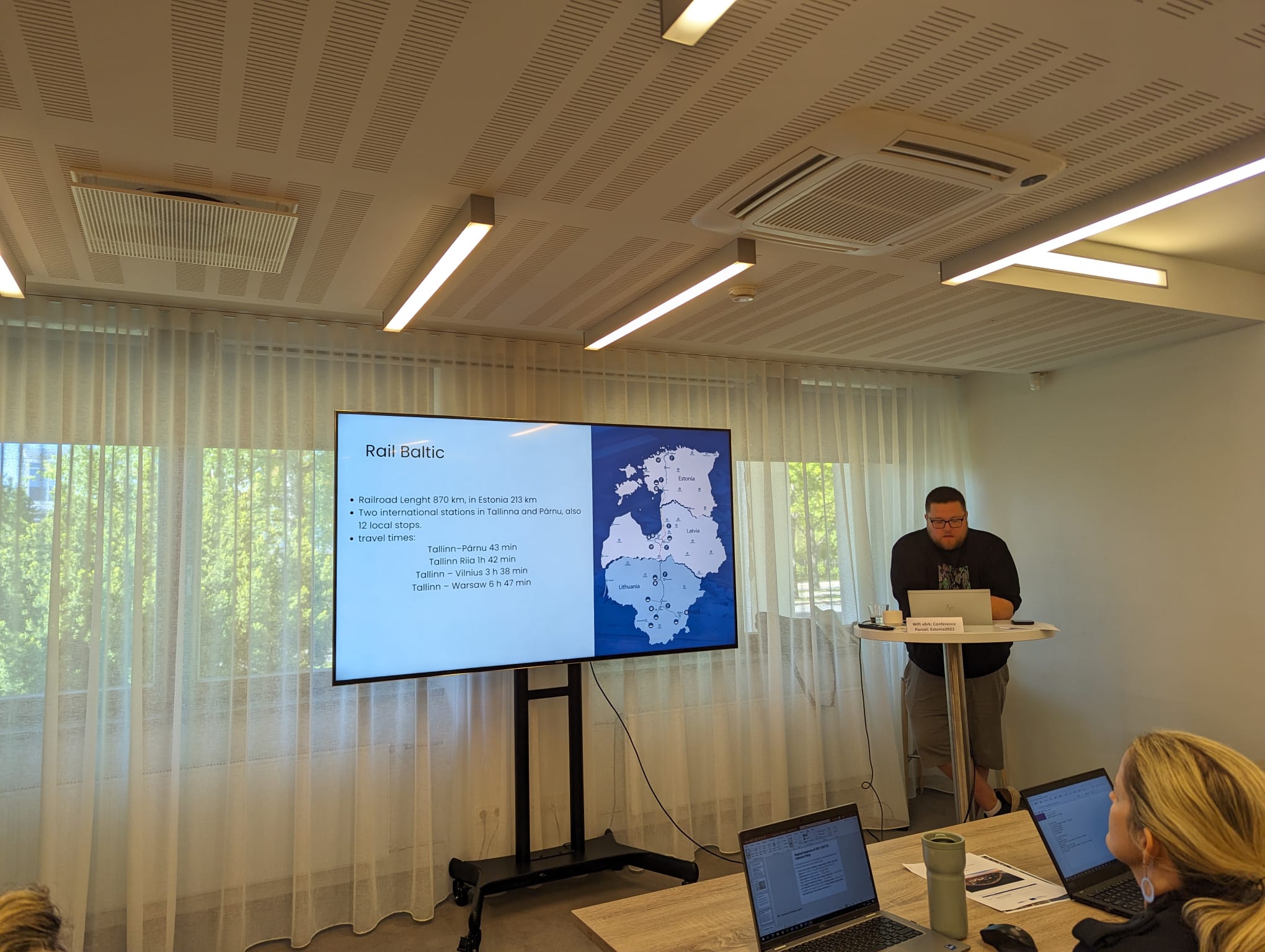
Kadri Jushkin from the Regional Ministry of Estonia briefed the participants on local regional development in Estonia. In her presentation Priidu emphasized the increasingly importance of sustainability aspects in regional development. At local government level for example they have network of green ambassadors to mediate and make sense of green reforms for the public and they have a target to shift to entirely renewable energy production by 2030 having previously relied heavily on oil shale.
Kadri highlighted challenges such as population decline in regions, disparities in labour productivity between the capital city and the regions and the need for balanced regional policies. Challenges such as seasonality, high salaries, and the need for a proper university were discussed.
Triin Jõesaar provided insights into Estonia’s digital transformation, discussing the widespread adoption of digital ID and e-services. The session underscored Estonia's success in digital inclusivity and competence, with 99% of public services being digital. Initiatives to train older populations and ensure inclusivity in digital literacy were also highlighted. You can read more about E-Estonia in the case study here: https://urbact.eu/sites/default/files/2024-07/E-Estonia%20Case%20Study.pdf
After lunch, the afternoon featured a challenge based workshop on improving cooperation between public and private organizations, followed by a peer review session of the Integrated Action Plan (IAP). These sessions facilitated active engagement and knowledge sharing among the participants. Read about the ideas gathered during the challenge based workshop here: https://urbact.eu/sites/default/files/2024-07/Challenge%20based%20workshops.pdf
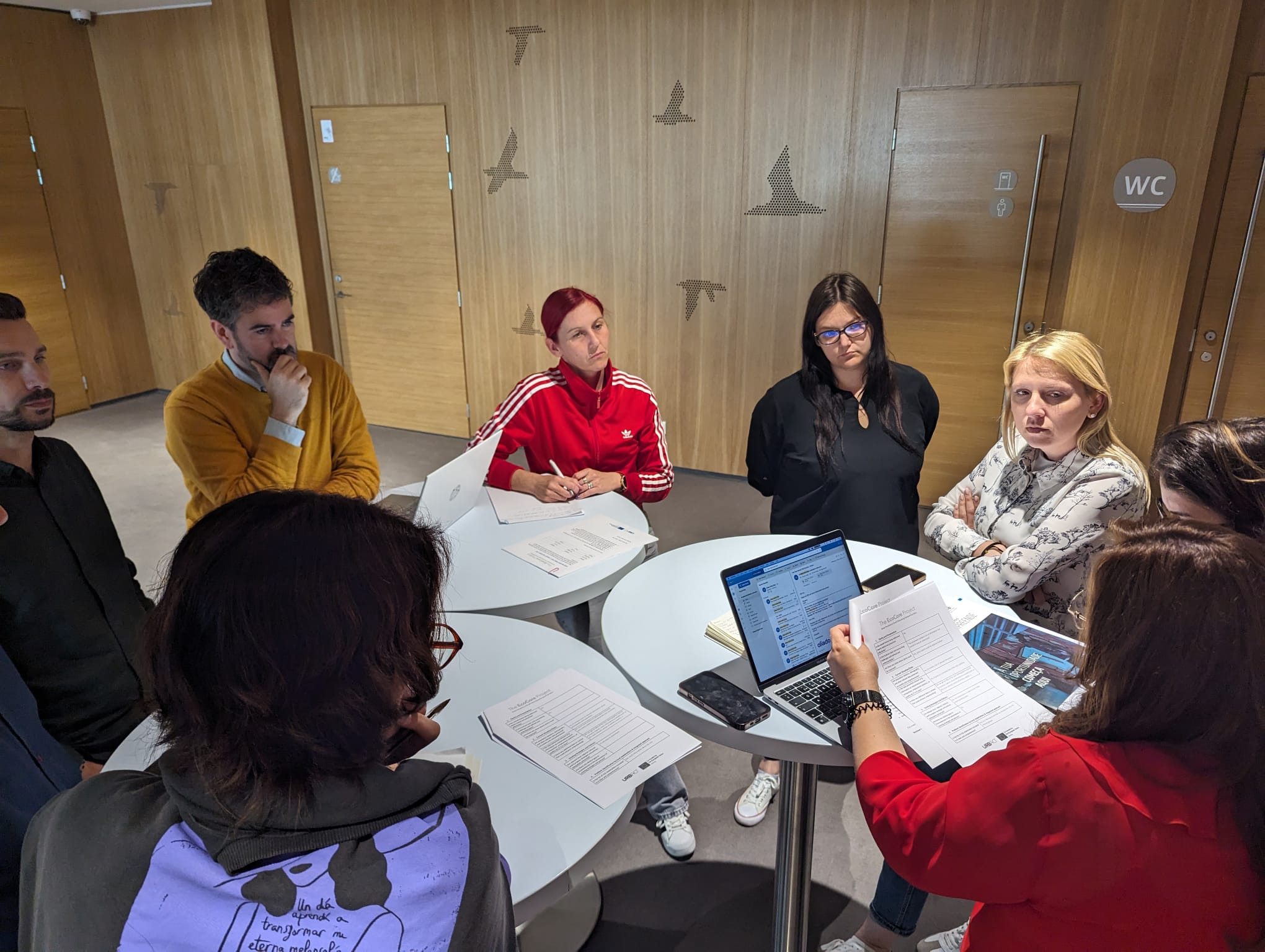
Day 2: Exploring Innovation and Practical Applications
The second day began with a visit to the Pärnu’s county development centre, where Erik Reinhold outlined the centre’s role in fostering local and regional innovation. Pärnu County Development centre is part of the nationwide network of county development centres that includes 15 development centres in each county all over Estonia. The Pärnu county development centre is the main driver of the implementation of Pärnu County’s Development Strategy 2035+. You can read more about the development centre in our case study here: https://urbact.eu/sites/default/files/2024-07/Parnu%20Development%20Centre%20Case%20Study.pdf
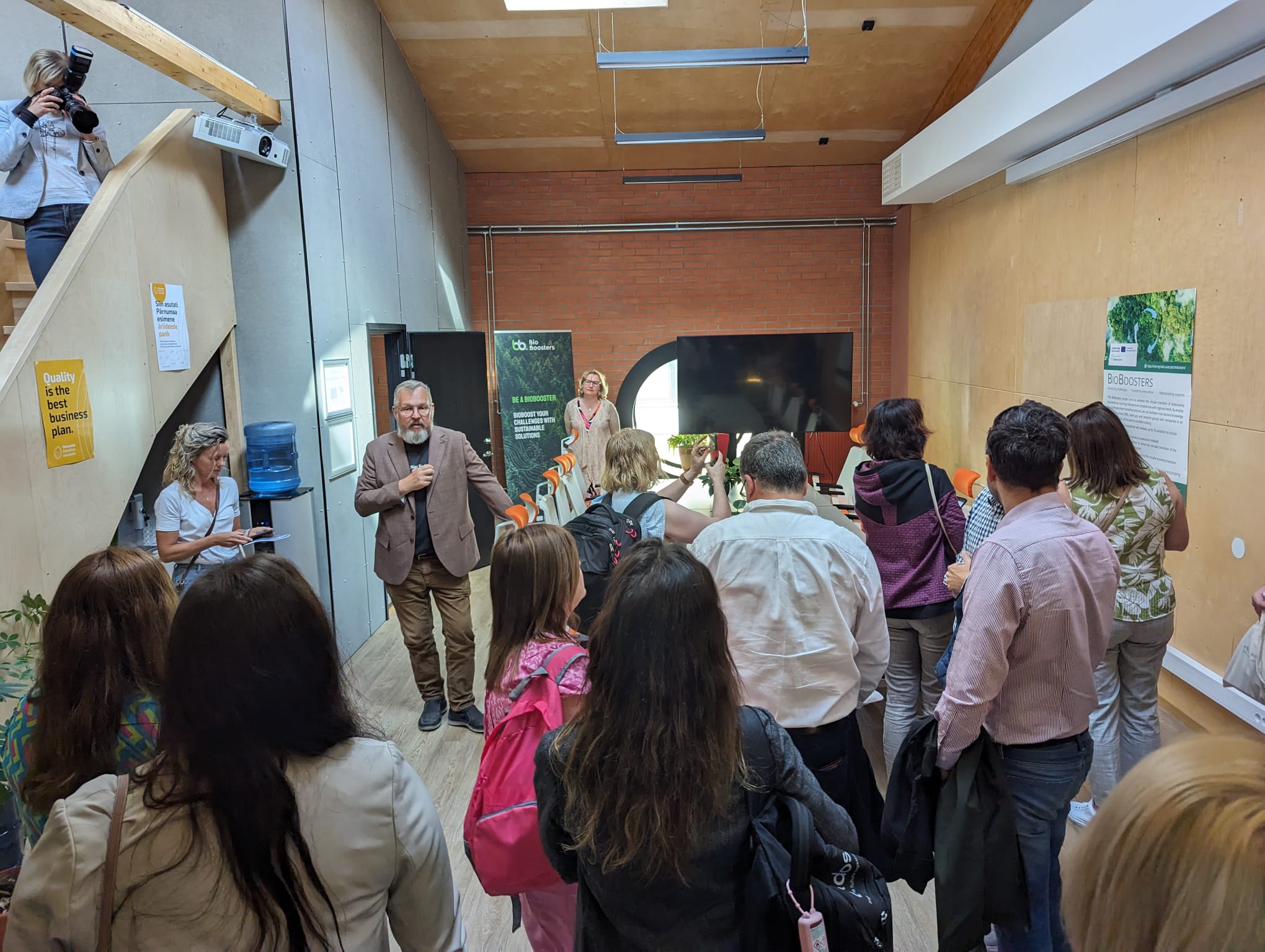
This was followed by a tour of the Ehitajatetee Business Park, located in the historic industrial quarter of the city which includes a renovated brownfield site that today offers hassle free, modern rental spaces for SMEs in a strategic location. Development of the space started in 2015 as a result of the growing demand for modern rental space and today they have about 200 tenants mostly involved in light manufacturing, warehousing, logistics and retail. Ervin Luur, CEO, highlighted their efforts and plans to promote collaboration and cross fertilisation between businesses located in the business park in an effort to drive innovation.
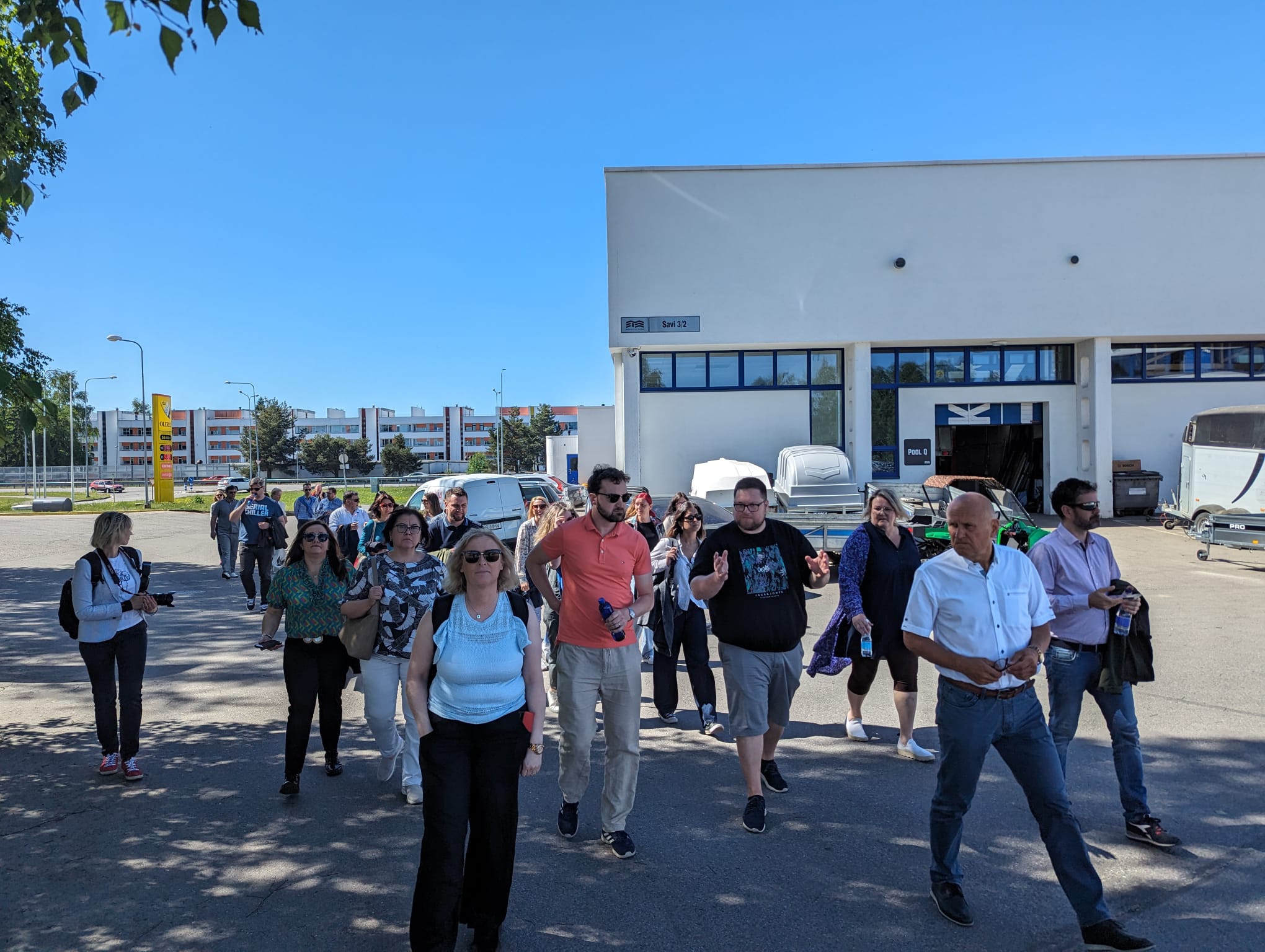
After a quick picnic in the riverside park, partners continued with the site visits in the afternoon first to ‘ForwardSpace’ which is a coworking space managed by Egle Volke who provided a tour and highlighted the importance of flexible and collaborative work environments in driving innovation and entrepreneurship.
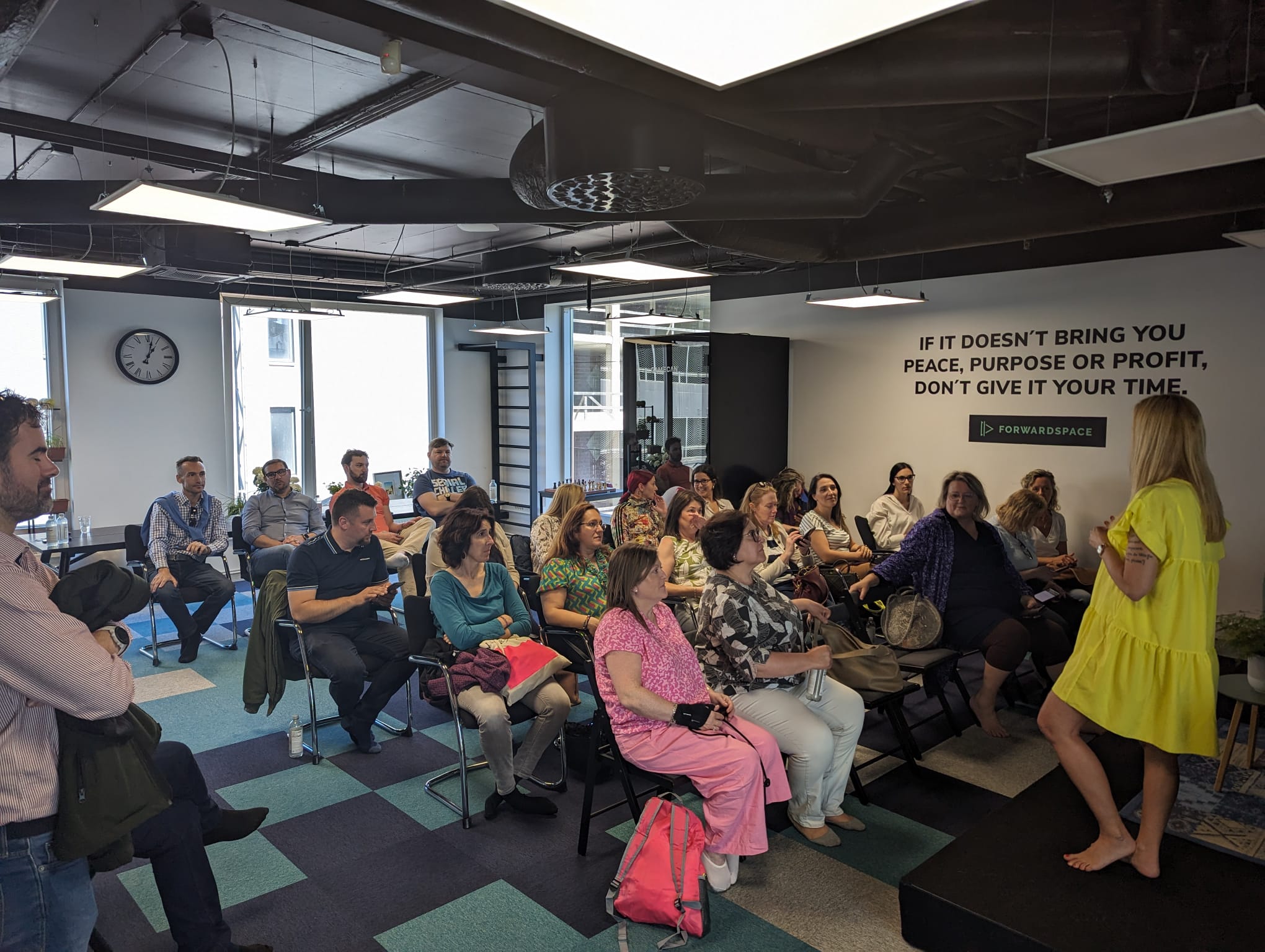
This followed with a guided bus tour led by Silver Smeljanski where partners were provided with an overview of the city’s multiple industrial areas including Pärnu Airport, and Pärnu Harbour. The tour provided a comprehensive view of the city’s infrastructure and development plans.
The site visits underscored Pärnu’s holistic and sustained efforts in creating conducive environments for business and innovation to flourish.
After the site visits the group went back indoors at the city library to enable peer exchange with a focus on the "Start, Stop, Continue" exercise. This exercise encouraged partners to reflect on what they saw and learned over the past two days and to share with their peers in Pärnu advice and feedback under the headings of things they should ‘start’ doing, ‘stop’ doing and ‘continue’ doing.
The meeting wrapped up with a discussion on project management, communication, and next steps, ensuring that the momentum from the event would be shared and discussed with stakeholders locally in each of the partner regions.
The day concluded with a guided tour through Pärnu's 15,000-year history, offering participants a deeper appreciation of the city's rich cultural heritage.
The EcoCore Network meeting in Pärnu clearly highlighted the city's forward thinking and innovative approaches to sustainable development, regional cooperation and digital transformation. Through collaborative discussions, workshops, and site visits, participants gained valuable insights and forged stronger connections, setting the stage for continued progress and innovation in their respective regions.
The event exemplified the URBACT spirit of collaboration and forward-thinking essential for tackling the challenges of modern urban and regional development. As participants return to their home cities, the lessons learned and connections made in Pärnu will undoubtedly drive future successes in sustainable and inclusive growth.
